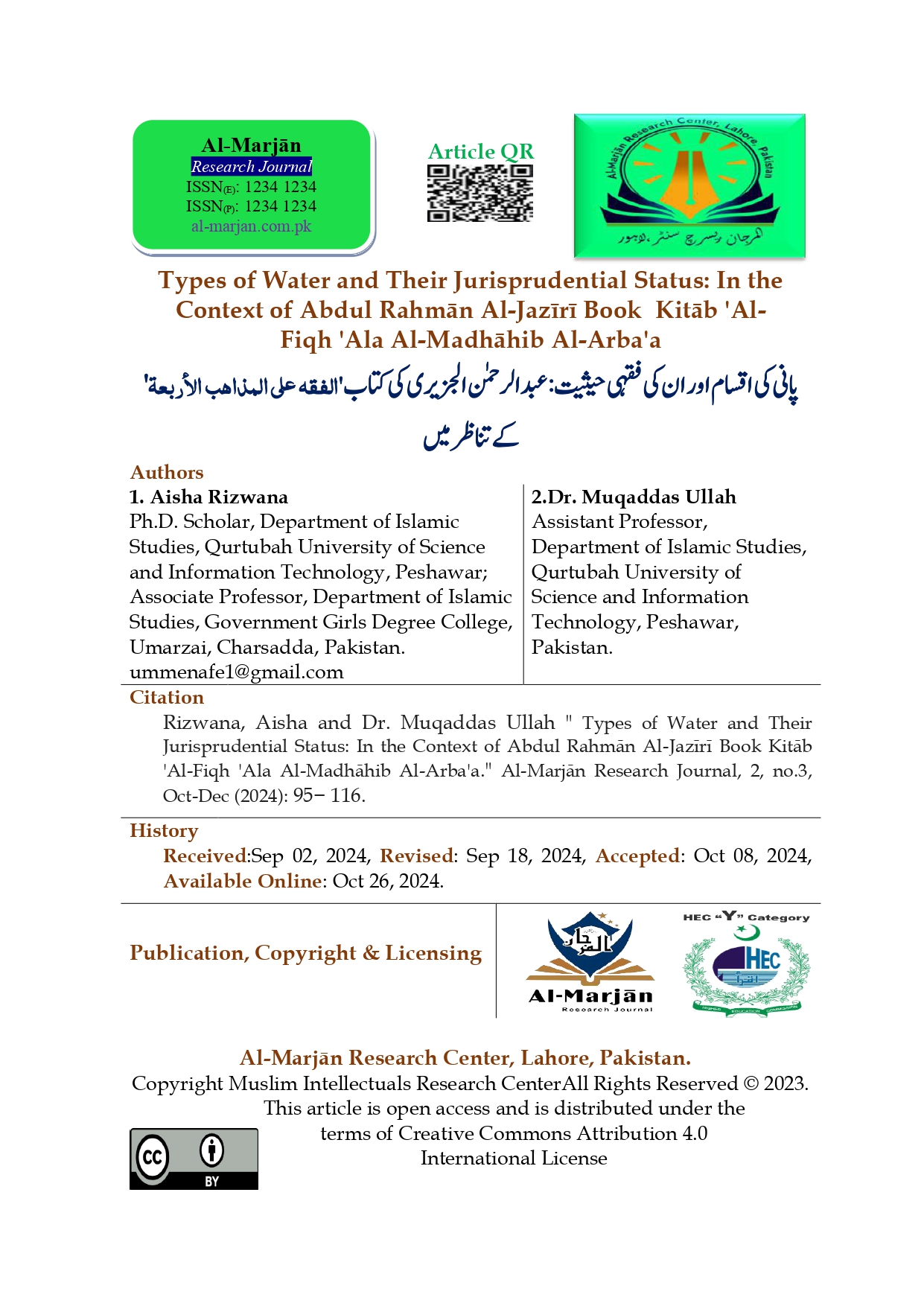Types of Water and Their Jurisprudential Status: In the Context of Abdul Rahmān Al-Jazīrī Book Kitāb 'Al-Fiqh 'Ala Al-Madhāhib Al-Arba'a
پانی کی اقسام اور ان کی فقہی حیثیت: عبدالرحمٰن الجزیری کی کتاب 'الفقہ على المذاهب الأربعة' کے تناظر میں
Keywords:
Al-Fiqh ‘Ala Al-Madhahib Al-Arba‘ah, Abdul Rahman Al-Jaziri, Tahara, wudu, najisAbstract
In his famous book “Al-Fiqh ‘Ala Al-Madhahib Al-Arba‘ah”, Abdul Rahman Al-Jaziri elaborates on the different types of water within the context of Islamic jurisprudence related to purification (Tahara). Water is classified into various categories to clarify the rules regarding purification (such as for ablution and ritual bathing). According to the four major schools of Islamic jurisprudence (Hanafi, Maliki, Shafi‘i, Hanbali), water can be divided into the following categories: Water that is pure and purifying: This refers to water that remains in its natural state, free from any impurities or substances that alter its purity. This type of water can be used for purification, such as for ablution (wudu) and ritual bathing (ghusl). Water that is pure but not purifying: While this water is considered pure, it cannot be used for ablution or ritual bathing because it has been mixed with substances (though not impurities) that affect its ability to be used for purification purposes. Water that is impure (najis): This is water that has become contaminated or impure, rendering it unusable for any purpose, including ablution, ritual bathing, or any other form of purification. This research paper categorizes these three types of water and includes further research and verification of the sources mentioned within Islamic jurisprudence.
Downloads





































